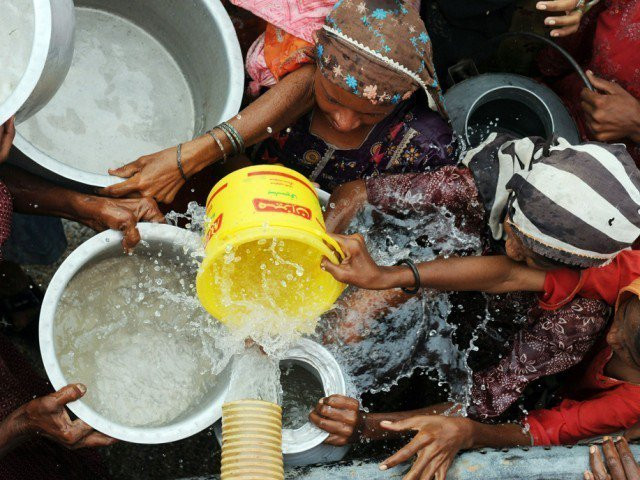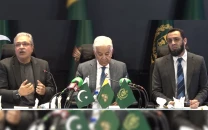Sustainable Development Goals: Safe drinking water target out of reach: experts
A growing population and a rise in pollution cited as major obstacles in completing goals

A growing population and a rise in pollution cited as major obstacles in completing goals. PHOTO: AFP
These issues were discussed at a one-day ‘Regional Dialogue on SDG-6.0’ organised by the Pakistan Council of Research in Water Resources (PCRWR) in collaboration with the Tajikistan Embassy and the ECO-Science Foundation.
Water experts and researchers said that these factors were mainly obstructing the country in meeting the SDG 2015-2030 on time.
They believed that the country was already off-track in meeting these targets.
The dialogue took place under the umbrella of the International Decade for Action-Water for Sustainable Development (2018-2028).
While talking to The Express Tribune an official working closely with the water sector in Pakistan, who wished not to be named, said Pakistan has already missed the MDG water and sanitation target.
“The pace with which Pakistan is currently improving its water and sanitation sector clearly indicated that the country will not be able to meet the target even by 2050,” an official said.
By 2030 the country’s population is expected to double and it would be more challenging for the government to meet the water requirement and improve sanitation issues, said the official.
The official cited a survey conducted by PCRWR in 2005-06, saying that only 20 per cent of the country’s population had access to clean drinking water, while the same survey showed only 10 per cent improvement in 2015-16.
Earlier, PCRWR chairman Dr Muhammad Ashraf said that targets of SDG-6.0, especially ‘provision of safe drinking water’, could only be achieved by demonstrating strong political will, national ownership and the right methodology.
ECO-SF president Prof Dr Manzoor Ahmad said: “All ECO countries are facing water scarcity and quality problems. We must manage our water resources … efficiently,” he said.
Later, water experts and researchers outlined a draft framework for implementing SDG 6.0 targets in Pakistan.
Published in The Express Tribune, March 8th, 2017.


















COMMENTS
Comments are moderated and generally will be posted if they are on-topic and not abusive.
For more information, please see our Comments FAQ